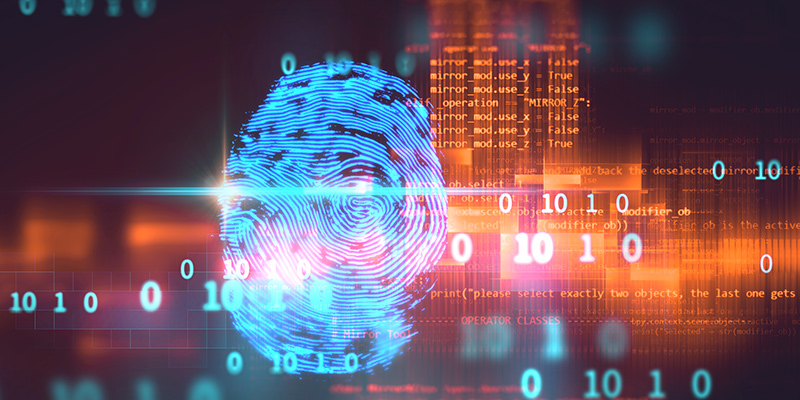Good online safety is good business

Be safe – two words we’ve probably all used with greater regularity over the last 18 months than ever before. The routines we employ when we shop and dine, how we greet neighbours and relax with family and friends have all changed thanks to COVID-19.
Almost as important as our physical safety is our online safety. There are unseen hazards lurking everywhere on the internet and it’s incumbent on all of us to be hyper-aware of these safety hazards because an online virus can spread just as quickly and dangerously as a coronavirus.
It seems like almost every day there’s another news story about an online security breach. Linkedin and Facebook, Exxon-Mobile and Shell, T-Mobile and Virgin Media… all have been badly hacked, leaving their customers’ privacy and personal information exposed. It’s important to keep in mind that all these big companies have highly sophisticated security protocols in place to protect against a breach, yet hackers still find a way in. Meanwhile, there were over 11 million new pieces of malware detected this past August alone. It’s impossible to keep up…
Small- and medium-sized businesses are just as vulnerable. In fact, 43% of cyberattacks are aimed at small businesses and over 50% of small businesses suffered a breach within the last year, costing an average of $200,000 due to the loss of customer or employee data, or the theft of intellectual property, trade secrets or research and development. That’s why protecting yourself against a cyberattack is simply smart business.
5 things you and your organization should do to prevent getting hacked
1) Be smart with your passwords Using “password” as your password is begging for trouble. Same goes for “12345” and literally anything else that is an obvious doorway to your private information. The longer and more unique the password, the better. Use alternate character types (i.e. capital letters, numbers and symbols), don’t use the same password across multiple websites and keep a physical journal to record all your passwords (instead of storing them on your computer). You could also consider a password manager to help you create strong passwords and store them securely.
2) Use multi-factor authentication Mult-factor authentication has become increasingly popular over the last few years. The method involves using a secondary piece of information, such as a code generated by an app or a text that is sent to your mobile phone, in addition to using your password. This secondary code ensures that it really is you trying to log in since you’re the only one able to receive the code. This Verge article offers extensive information on how to set up multi-factor authentication on a wide variety of platforms from Microsoft and Apple to Google and Dropbox and all the major social media platforms.
3) Update everything Every piece of internet-enabled technology you use is open to an attack. Not just your computer, but all the apps on your phone, your Google Home device, smart TV and more. Thankfully, the companies behind those technologies are constantly at work finding bugs and fixing them. It’s important to follow through with these updates when you receive them. Naturally, those pesky update alerts always seem to pop up when you’re already juggling several balls in the air. Make the time to accept the update at the earliest possible moment… because getting hacked is one juggling act you definitely don’t want to experience.
4) Learn how to spot a phishing attack Even if you don’t know what phishing is, guaranteed you’ve seen this internet scam. Phishing is when an attacker sends a fake email (or text… or robocall) designed to trick you into clicking on a link and revealing sensitive information. A fishing email, for example, will impersonate your friend, client, vendor, family member or your bank, internet provider, Revenue Canada, etc. To protect yourself against a phishing attack, think twice before you click. Look at the sender’s address and especially the domain in the address. If you’re still not sure whether can trust the email, you can always double-check by calling the organization and asking if the email is legit.
5) Perform a security audit While the above suggestions can be performed at both the individual and corporate level, the best way to enjoy cyber peace of mind is by performing a security audit. Professional online security experts such as Accenture, Cyberclan and Rigel Kent can examine your technology infrastructure and processes from the top down and provide invaluable insights into developing custom security systems that are iron-tight while uniquely supporting your business needs. It’s an investment well worth your money and time.
The takeaway
The bottom line is that no individual or organization is 100% protected against hacking. Unfortunately, hackers are often one step ahead, looking for opportunities to access your information in ways the software developers and security experts haven’t thought of yet. Conducting a security audit and faithfully following the steps listed above is your best defence.
Here’s an idea that would be good to go viral: forward this article to your family, friends and business associates so we can collectively enjoy a safer online ecosystem. And if you have any questions, contact us today.

Angelo Perri is the founder and CEO of MHZ Design Communications, a customer engagement agency located in Toronto, Ontario, Canada. Connect on Linkedin.
